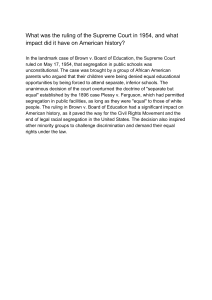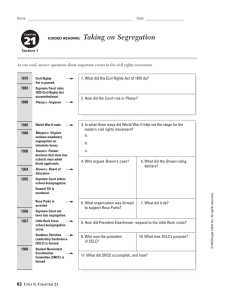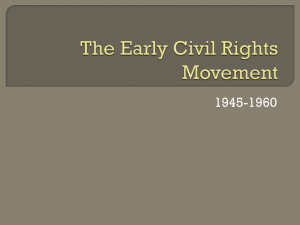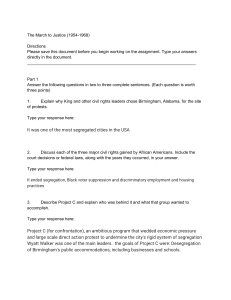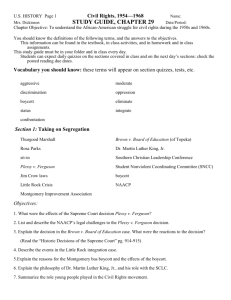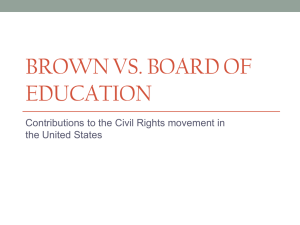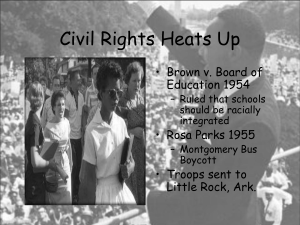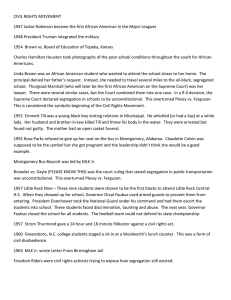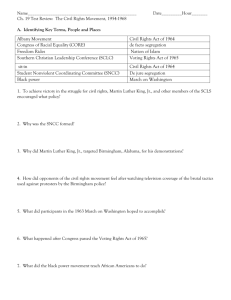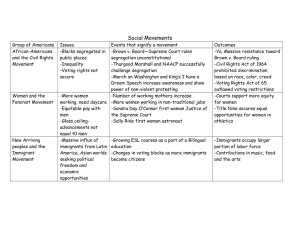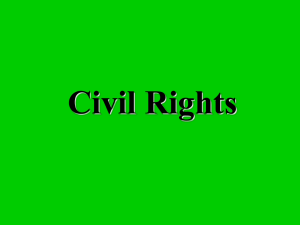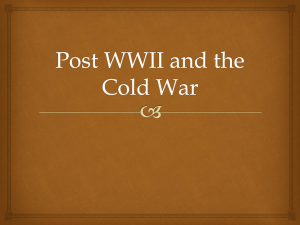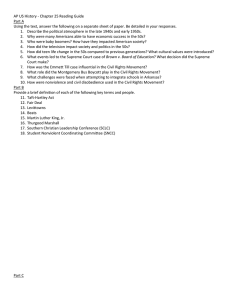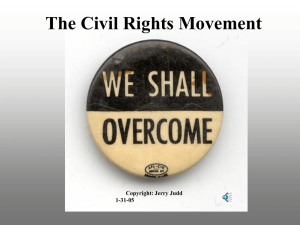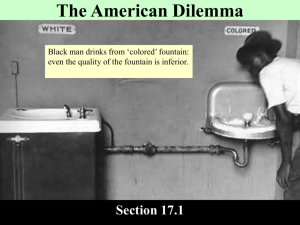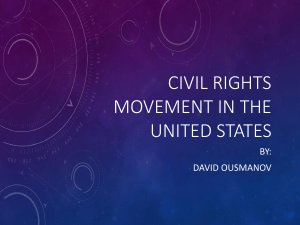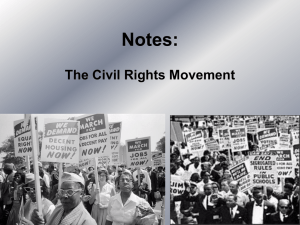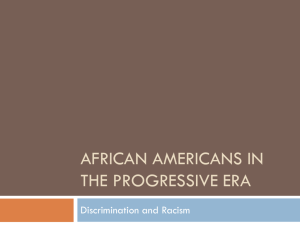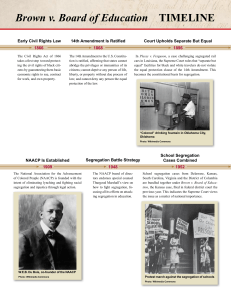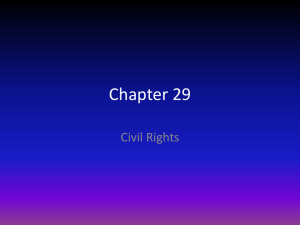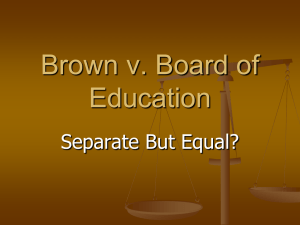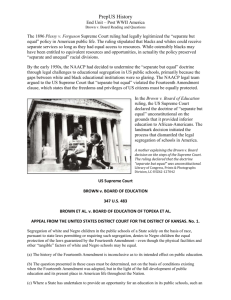Civil Rights
advertisement
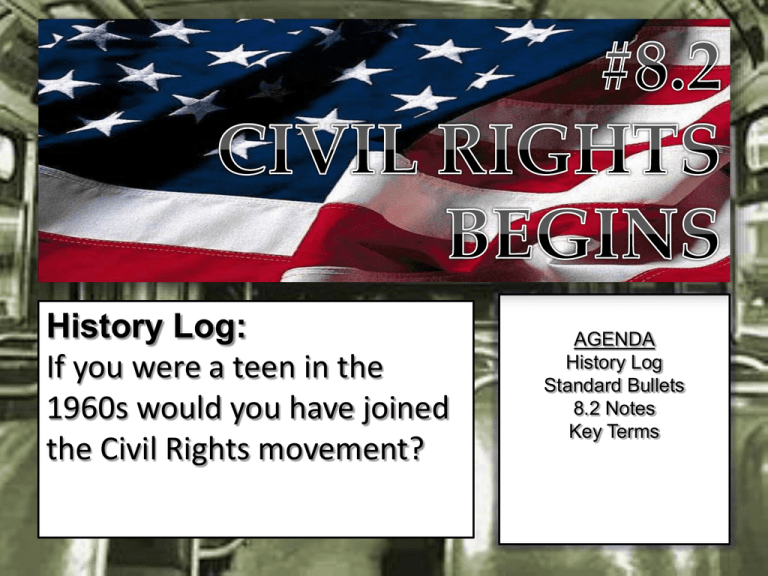
History Log: If you were a teen in the 1960s would you have joined the Civil Rights movement? AGENDA History Log Standard Bullets 8.2 Notes Key Terms CAUSES OF THE CIVIL RIGHTS MOVEMENT 1. Segregation 2. Lack of voting rights 3. African American experiences in WWII Separate but Equal: Plessy v. Ferguson 1896 established the doctrine of separate but equal facilities. NAACP: Civil rights organizations, its mission is "to ensure the political, educational, social, and economic equality of rights of all persons and to eliminate racial hatred and racial discrimination". Brown v. the Board of Education: was a landmark decision of Supreme Court outlawing segregation in schools. The decision overturned earlier rulings going back to Plessy v. Ferguson in 1896. Thurgood Marshall: Head lawyer for the NAACP. Later he becomes a member of the Supreme Court. Thurgood Marshall Martin Luther King Jr.: Leader of the SCLC, minister, and leader in the civil rights movement. His main legacy was to secure progress on civil rights in the United States through non-violent protest. Montgomery Bus Boycott: was a protest campaign started in 1955 in Montgomery, Alabama, when Rosa Parks, an African American woman, was arrested for refusing to surrender her seat to a white person, this led to a United States Supreme Court decision that declared laws requiring segregated buses to be unconstitutional. Southern Christian Leadership Conference: is an American civil rights organization. SCLC was closely associated with its first president, Dr. Martin Luther King, Jr. The SCLC had a large role in the American Civil Rights Movement. Little Rock Nine: were a group of African-American students who were enrolled in Little Rock Central High School in 1957. The students were prevented from entering the segregated school, until President Eisenhower intervene. Study the photograph of Central High School student. How would you describe Elizabeth Eckford’s demeanor compared to those around her? What might this tell you about her character? How do you think Elizabeth Eckford felt on the day this picture was taken? Children’s March: March by hundreds of school students in Birmingham, Alabama, in May of 1963. Organized by Rev. James Bevel, the purpose of the march was to walk downtown to talk to the mayor about segregation in their city. Brown v. Board of Education Children's March Bus Boycott Efforts to End Segregation Voter Registration Movement SCLC founded Founding of CORE and Sit-ins
